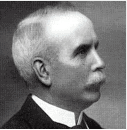As the average concentration span of the adult human is less than forty minutes, I have always puzzled over the reason why meetings last any longer than this, particularly in IT where the concentration span strains to reach these giddy lengths.
You will be astonished to know that there is actually a correct way to conduct business meetings, as you have probably never been told about it, and never experienced a properly conducted meeting. I will therefore explain.
When the Second World War was imminent, Britain was totally unprepared, being in one of its occasional utopian dream states we now recognise as Blairism. Fortunately, the government of the time was out of tune with this zeitgeist of torpor and urgently put in place the means of developing technological breakthroughs to aid the forthcoming war effort. A number of scientific projects were initiated by a group of scientists grabbed from the universities, nicknamed the ‘Boffins’, and given government positions to develop the means to win the war. Radar, Code-Breaking, and aero-engine technology were the most visible achievements of the ‘Boffins’. Operational Research was, however, the one that had the most immediate effect, and which the Americans wanted as much as Radar and the Jet Engine. The science spawned ‘time and motion’, the modern science of Project management, and a huge methodology of coordinating enterprises, whether commercial or military. Its effect was more far-reaching even than the Jet Engine.
The conduct of meetings was an early success of Operational Research. The boffins noted that, within less than an hour in a meeting, managers or army officers entered a semi-hypnotic state almost the same as REM sleep, but still enabling them to pour out waffle like ‘we are addressing your issues and concerns’. They noted that the productive work of a meeting was inversely proportional to the length of time taken by the meeting past this magic time period. After a great deal of research, they came up with the following rules, taken from existing best-practice…
- No meeting should ever take more than an hour, and its length must be determined and published beforehand
- Nobody should be allowed to speak for more than three minutes at a time.
- The meeting should have an itemised agenda
- All documents to be discussed or produced should be ‘discovered’ (i.e. shown or copied to all attendees) in good time before the meeting
- No decision can be reached by the meeting on any item that is not in the agenda.
- The meeting must have a predetermined quorum A meeting must always have a Chairman (man in the sense of human, girls)
- The Chairman is responsible for the good conduct of the meeting
- For the course of the meeting the Chairman represents the organisation and has the authority and respect of that organisation.
- All actions and decisions of meetings must be minuted, and previous minutes must be explicitly approved.
These simple rules expedited the decision-making process in British industry and the Services at the time to such an extent that, by way of example, we had more serviceable fighter planes after the Battle of Britain than before, and were able to achieve the evacuation of Dunkirk, the scale of which was previously unimaginable.
If a thought cannot be expressed in three minutes, it has not been properly formulated, and human groups have the uncanny ability to find solutions within seconds before or after the end of a meeting, whatever its length.
Now cast your minds back and try to think of a meeting in any IT department anywhere that conforms to any of these rules. They are generally pandemonium, lasting several hours whilst all the ‘Alpha Males’ wrestle for control of the WhiteBoard or witter in a stream-of-consciousness way about anything that drifts lazily into their brains. After forty minutes of this, we still seem to be awake, but in fact we have as much power of original thought as a Zombie. After a couple of hours we lose the will to live. The reason that this is ever allowed to happen is because this sort of meeting puts power in the hands of people ready to exploit this foolish way of working.
I have been accused of being and old and cynical man, but I can assure you I used to be young and cynical. It was whilst still in this blessed state that I had the good fortune to be tutored by an expert on the best ways of influencing an organisation.
I had almost accidentally ended up as a district councillor, when I met my tutor. It was an efficient and well-run organisation. This puzzled me greatly as the councillors were like an animation of a Hogarth cartoon, self-serving, idle and venal. They never ‘read their papers’ and only became animated when sensing a new trough into which they could put their metaphorical snouts. They would have struggled running a pair of tights let alone a tier of government.
I went to the Chief Executive officer of the council and asked him why he allowed council Meetings to go on so long. After a great deal of prevarication, he realised that the game was up and explained the technique, which I have found extremely valuable in getting my way in any organisation.
Imagine you have a public-sector IT project going over-budget that needs more funds to complete. Fortunately most people do not really understand the magnitude of difference between £100 and £1000; in adding a ‘nought’ to a figure. Meetings therefore started in the morning with a good long agenda that has to be finished in the morning. The meeting starts with a series of trivial decisions on whether the council should purchase a new lawn-mower, or a few wheelie-bins. Councillors can understand such things, and are full of blood-sugar from their hearty breakfast. They want to cut a dash in front of the reporters from the local paper. You give them their head, caring little for their decision. The morning drags on and you introduce decisions on more expensive and abstract items. They lapse into oxygen debt. There is a glorious time as lunchtime approaches when the meeting has reached that joyous deep-hypnosis, and their souls yearn only for lunch. It is then that you slip in the request for an extra £1,000,000 for your recalcitrant IT project. The money will be voted through with a minimum of fuss, in favour of completing the agenda and getting out to lunch. The news reporters will already be in the pub.
So simple, and it really works





Load comments